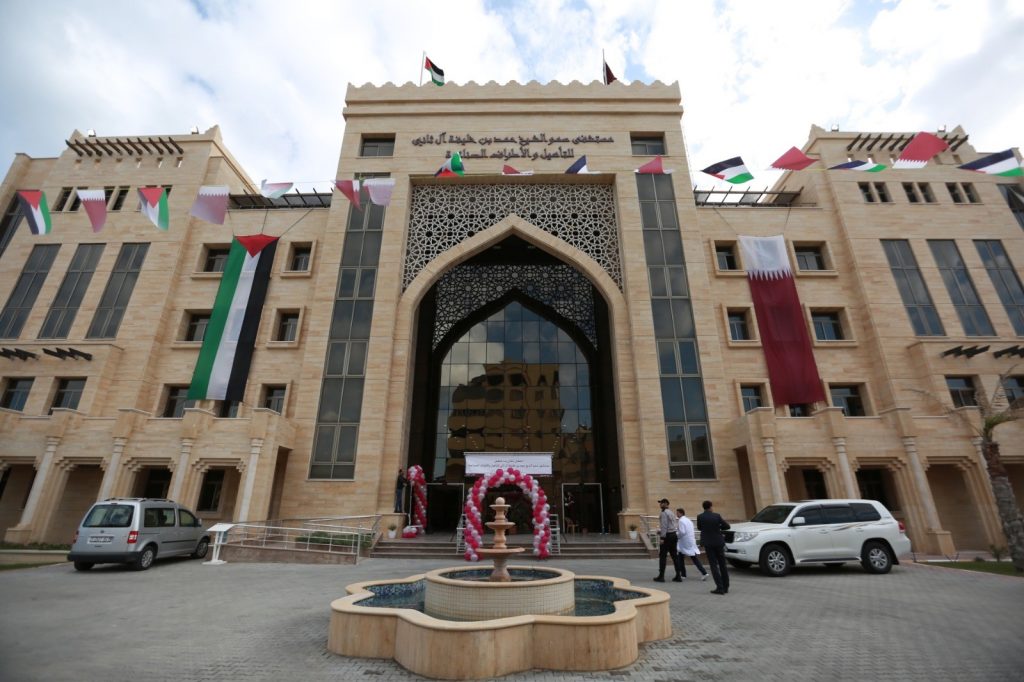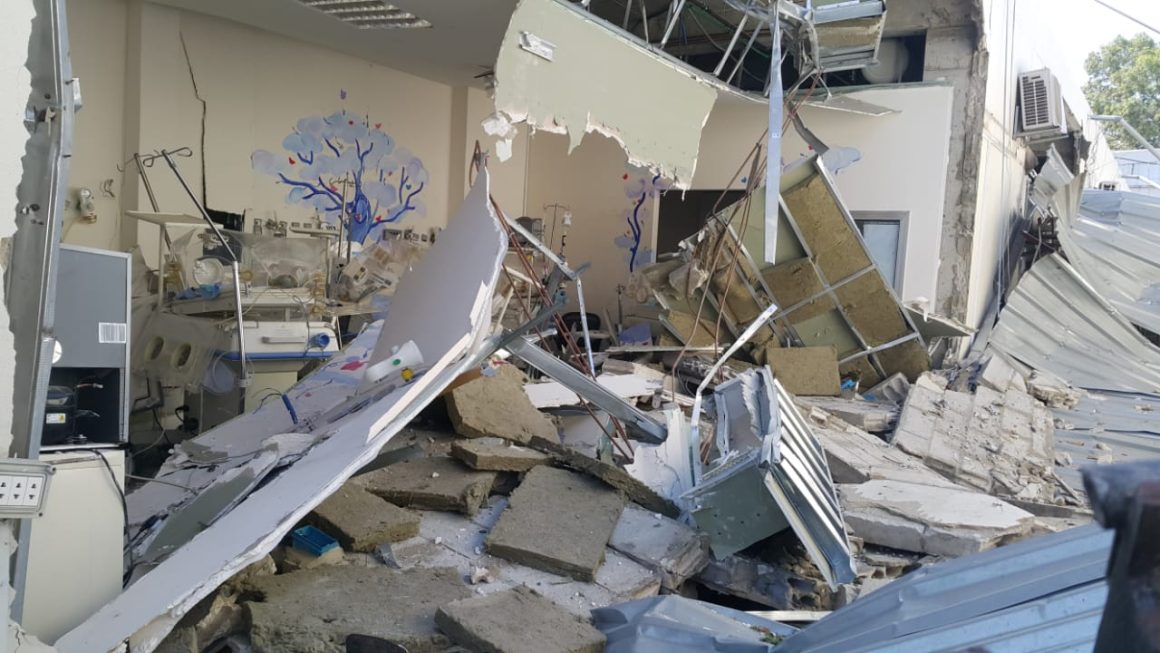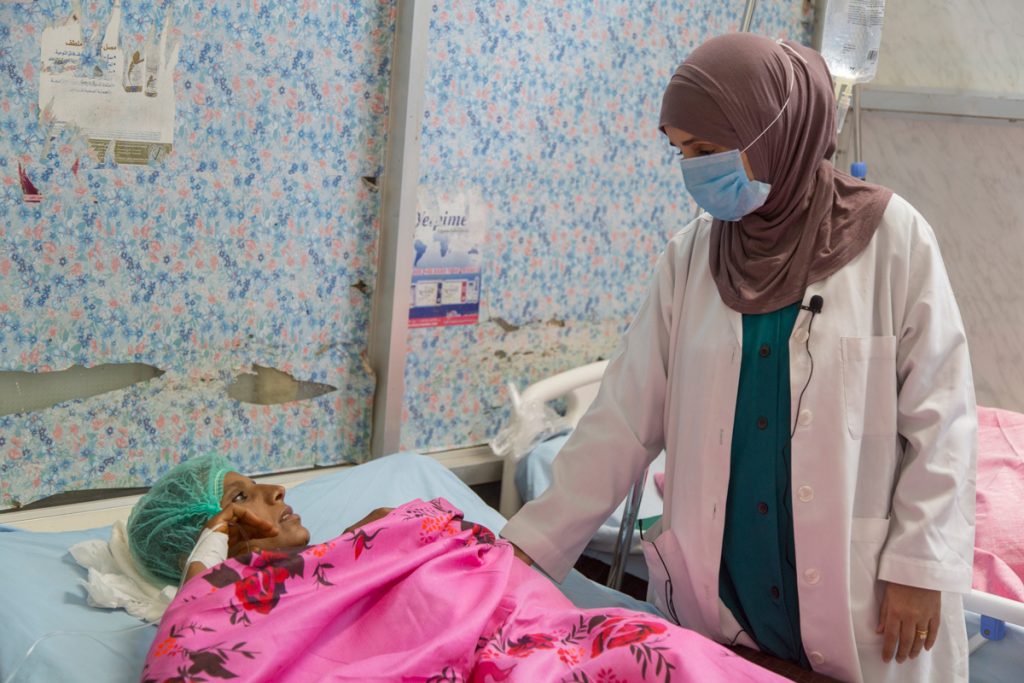The World Health Day is recognised on 7 April, the anniversary of the establishment of the World Health Organisation (WHO) in 1948.
Over the last decade, Qatar has stood as a reliable partner to the international community throughout global crises, particularly in the field of health.
In the early days of the unprecedented Covid-19 outbreak, global vulnerabilities were exposed as health sectors around the world found themselves facing continuous challenges as they navigated through the new virus.
At the time, Qatar extended a helping hand either by sending much-needed aid or providing vaccines to vulnerable communities.
Even before the crisis, the Gulf state had stepped in to support health care globally.
On World Health Day, we look at some of Qatar’s efforts to back health sectors in the region and beyond.
Hamad Hospital—Gaza
Hamad Hospital in the besieged Gaza Strip stands as one of Qatar’s most notable contributions to health globally.
Inaugurated in 2019, the prosthetic hospital is the first to open in Gaza and was named after Qatar’s Father Amir Sheikh Hamad bin Khalifa Al Thani.
The hospital also includes a disability rehab centre, providing easy access to Palestinians in Gaza, who struggle to receive treatment in the rest of Palestine.

Under Israel’s chokehold over Palestine, people from Gaza struggle to obtain movement permits to access treatment in Jerusalem and the West Bank.
People in Gaza have been under siege since 2007 as Israel subjects the city’s populations to repeated attacks.
At the time of its inauguration, more than 130 Palestinians had to undergo amputations after getting shot by Israeli forces.
Karantina Hospital—Lebanon
In 2021, the Qatar Fund for Development (QFFD) stepped in to reconstruct the Karantina Hospital in Beirut following the tragic explosion of 4 August, 2020.
The old hospital in Karantina was completely destroyed by the Beirut Port blast, which had rocked the entire city and almost completely wiped it out, killing more than 200 people.

The assistance came during a crucial time as Lebanon’s health sector crumbled under the country’s worst economic downfall.
Since 2019, the Lebanese currency has lost at least 90% of its value to the US dollar, as the population struggles to access its years worth of savings at local banks.
Last year, QFFD provided fuel to hospitals and health centres in Lebanon, including 40 government entities for elderly care.
Aisha Bint Hamad Al Attiyah Hospital—Morocco
In Morocco, Qatar inaugurated the Aisha bint Hamad Al Attiyah Hospital this year in an effort to support the North African country’s health sector.
In 2017, the Jassim and Hamad Bin Jassim Charitable Foundation had signed a 70 million QAR agreement to construct the fully-equipped hospital, which has the capacity of 45 beds.
Some of the clinics it includes are obstetrics and gynaecology, paediatrics and general medicine.
Al-Attiyah Hospital—Sudan
Qatar Charity is building the Al-Attiyah Hospital in Sudan, the biggest of its kind in Omdurman, with the aim to benefit at least 250,000 people.
The hospital will include obstetrics and gynecology services, a dialysis centre and a surgical and intensive care facility among other key services.
The hospital aims to lift some of the pressure on Sudan’s health sector while providing the country’s population with quality medical services.
In 2020, Qatar Charity had also established the Hussein Abdul Ridha Ismail Ashkanani Dialysis Centre in Sudan, one of the largest of its kind in the city.
The centre aims to provide health care access to kidney patients, especially those coming from low-income families. It was also Qatar’s response to shortages of such centres in Sudan, where thousands suffer from kidney failure.
Equal access to vaccines
In response to the Covid-19 outbreak, Qatar sent medical aid to its international partners before sending much-needed vaccines.
Months into the Covid-19 outbreak in 2020, the Gulf state provided urgent medical aid to nearly 78 countries. By August 2020, Qatar’s foreign aid in response to Covid amounted to nearly $50 million.
In 2021, Qatar announced a major $100 million initiative to vaccinate more than three million refugees and displaced people in 20 countries around the world.
Titled “I Am Vaccinated, I Donated”, the vaccine drive was in collaboration with WHO and was scheduled to run for three years, covering 20 countries across the Middle East, Africa and Asia.
Some of the countries listed were Afghanistan, Bangladesh, northern Syria, the occupied Palestinian territories, and Yemen. The campaign aimed to provide each listed country with 400,000 doses of the Covid-19 vaccines.
Also in 2021, QFFD donated $10 million to Gavi, the Vaccine Alliance under a five-year agreement to ensure vaccine access to lower-income countries.
“The outbreak of the Covid-19 pandemic has reminded us that we live on the same planet, and that multilateral cooperation is the only way to address the challenges of epidemics, climate and the environment in general,” Qatar’s Amir Sheikh Tamim bin Hamad Al Thani said during his United Nations General Assembly speech in 2020.







